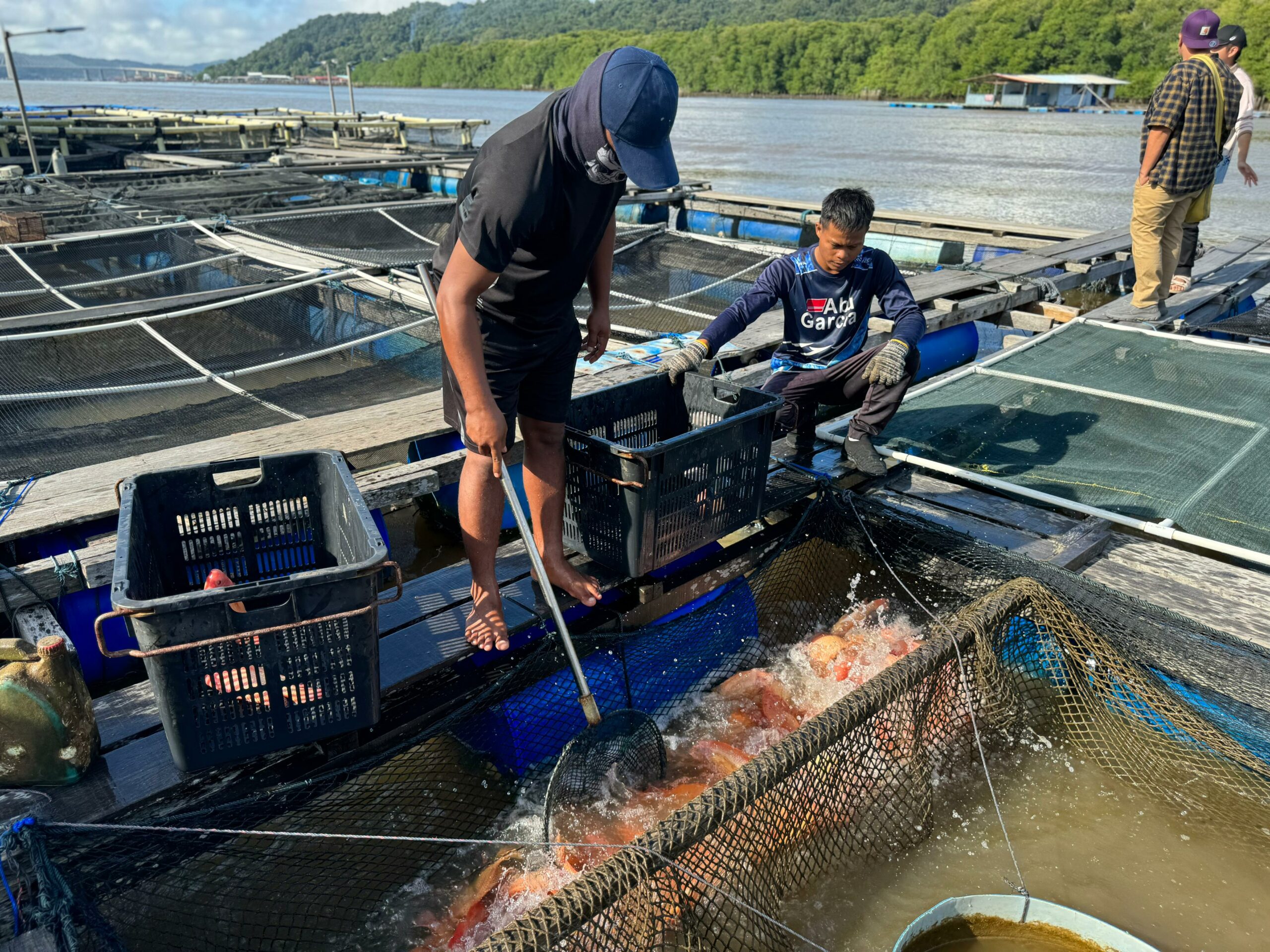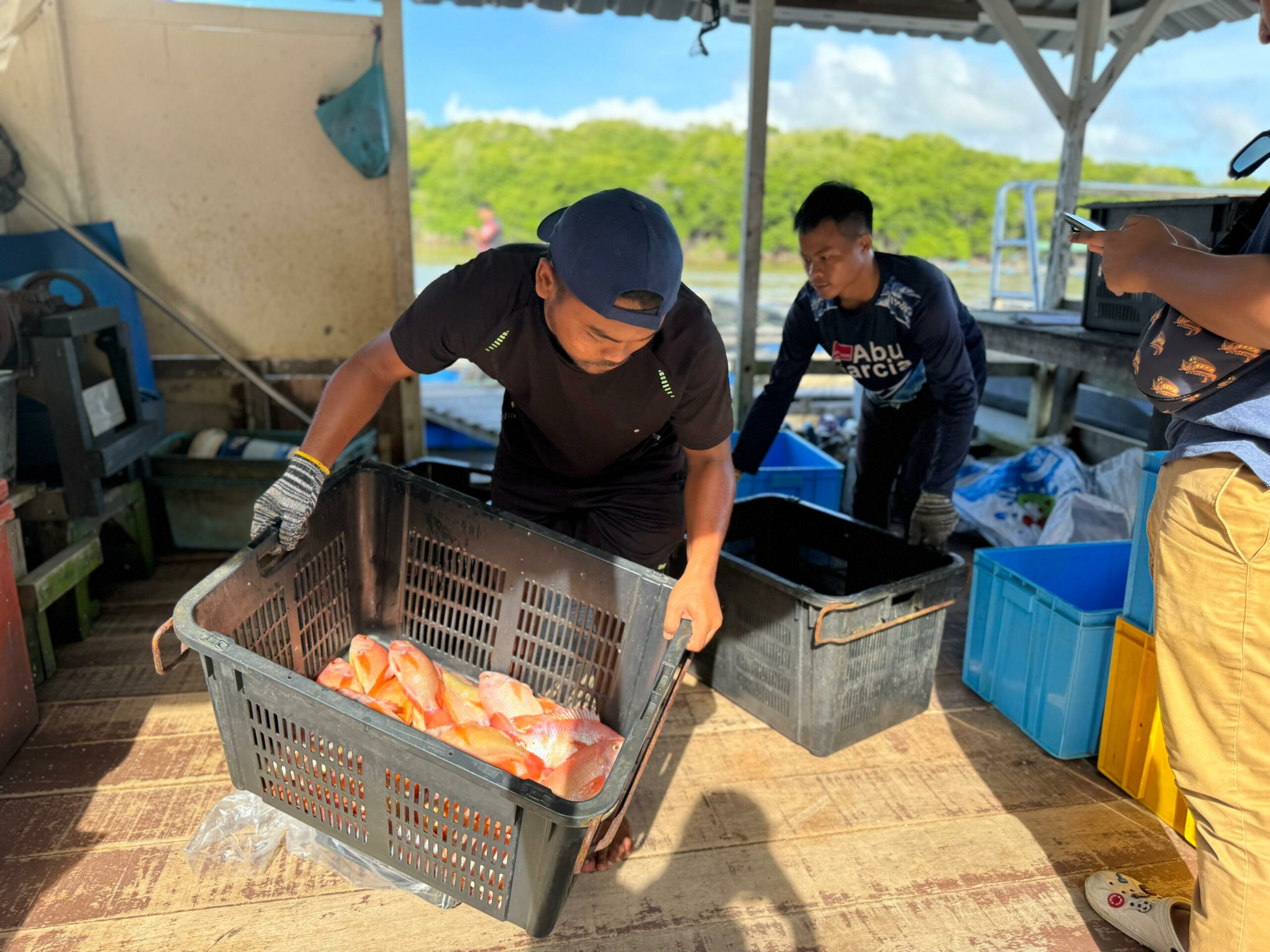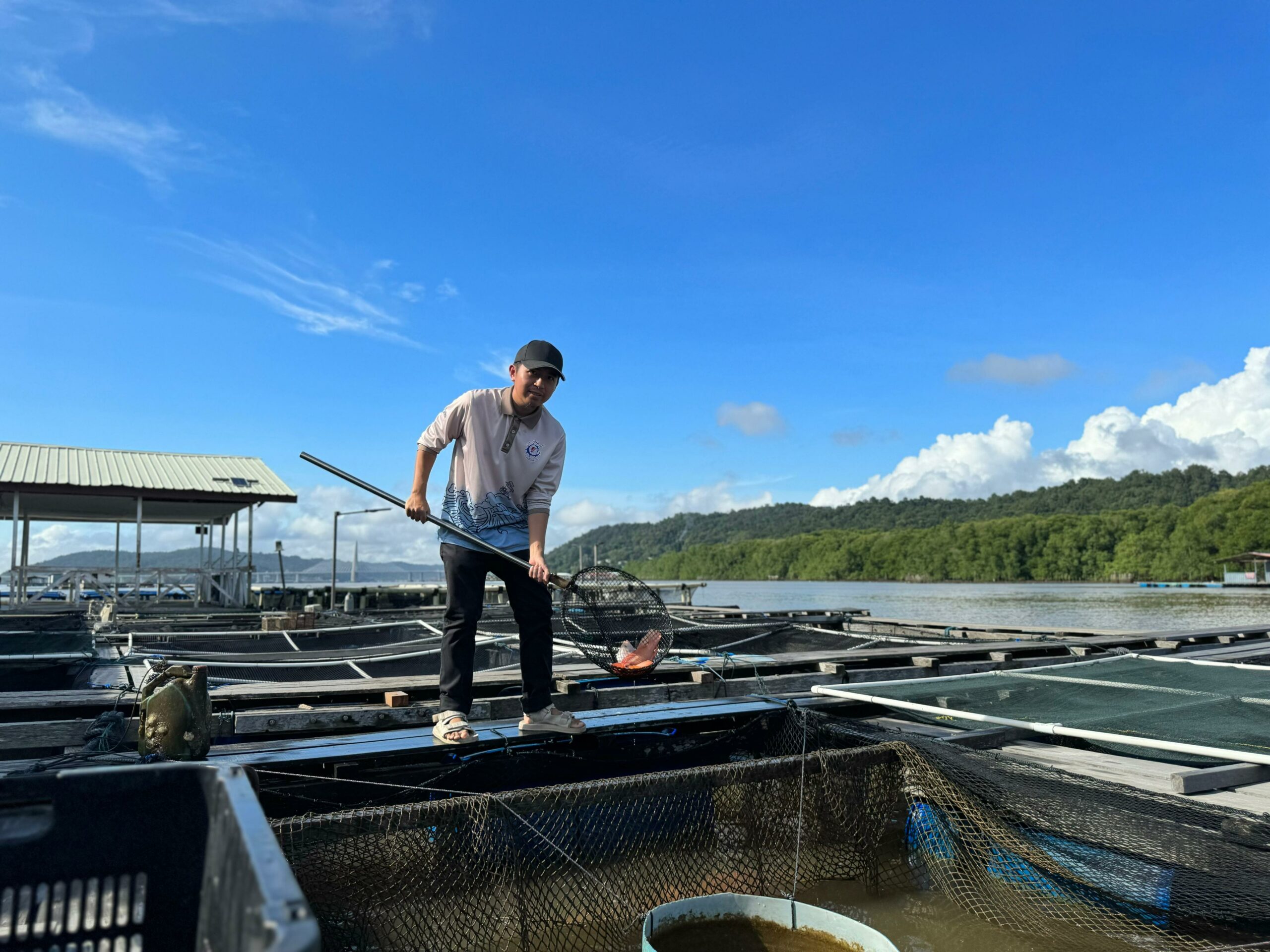Innovating aquaculture with a commitment to nature and sustainability
In a global landscape increasingly cognisant of Earth’s finite resources, a transformative shift is underway within the primary sector.
Beyond the traditional focus on productivity and profits, there emerges a nuanced perspective that considers the profound implications of activities on both socioeconomics and the environment.

For fish farmer Ahmad Fathi bin Dr Hj Norafan, this paradigm shift resonates deeply.
Armed with a scientific background, this sea cage aquaculture operator is charting a course from the outset with a bold vision – to establish a fish farm that not only achieves optimal productivity but does so with a commitment to zero energy consumption and ecological friendliness.
Ahmad Fathi is the founder of Fatih Aquaculture, a sea cage aquaculture farm which operates in two primary locations covering a total area of two hectares – Pulau Kaingaran, an islet near Pengkalan Sibabau and Mentiri and at Kampong Sungai Bunga in Kota Batu.
“Essentially our method involves cultivating fish within enclosures set up in open water. We specialise in two kinds of fish; seabass (locally known as ikan selungsung) and red tilapia,” shared the 25-year-old.
FROM BACKYARD TO OPEN SEA
Ahmad Fathi’s venture into the realm of aquaculture is a compelling story, initiated during his third year at Universiti Brunei Darussalam (UBD) as a dedicated Bachelor of Science student majoring in biology.
His introduction to the world of aquaculture began at the Borneo Marine Research Institute, University Malaysia Sabah, where he underwent his inaugural industrial training. It was here that Ahmad Fathi discovered his innate passion for aquaculture, setting the stage for a remarkable journey ahead.
Following his graduation from UBD in 2020, Ahmad Fathi’s venture into fish farming gained momentum.

Amidst the global pandemic, during a brief respite from the restricted movement in the Sultanate, Ahmad Fathi, who also indulged in hobbies related to fish care, plunged headfirst into the field of aquaculture.
“I wanted to pivot into something more sustainable for our country, which is food security. So I bought two six-foot fish ponds and attended courses on rearing freshwater fish. This was where I got my first set of red tilapia juveniles from the course’s instructor,” he said.
Over the course of three years, Ahmand Fathi managed his backyard fish farm, describing this period as filled with “trials and errors”.
It involved navigating challenges, such as setting up their own do-it-yourself recirculation aquaculture system (RAS).
These years were a hands-on learning experience for Fathi, marked by perseverance and a commitment to understanding the nuances of aquaculture.
“The next year our proposal to establish a one-hectare farming operation in Pulau Kaingaran was accepted (by the Department of Fisheries). We started with 24 cages.”
A STEP TOWARDS SUSTAINABILITY
At the core of Ahmad Fathi’s journey, aligned with his values as a student of biological sciences, is a deep-seated love and respect for nature.
His vision has always included the aspiration to become a sustainable fish farm, acknowledging the need to tread lightly on the environment.
After operating his fish farm in Pulau Kaingaran since 2022, the youth has already made the necessary steps to using sustainable practices such as using solar lights and employing high-density polyethylene (HDPE) pipes, when his farm expanded from 24 to 50 cages.

“We are gradually incorporating more solar energy into our operations,” he said noting that the ultimate aim is to transition entirely to a solar-powered system, eliminating the need for oil (through the use of generators).”
Discussing his recent expansion, Ahmand Fathi revealed that his new sea cages are constructed from plastic pipes – a choice he acknowledged as potentially counterintuitive in terms of sustainability, given the widespread perception of plastic as unsustainable and linked to pollution.
However, he pointed out the distinct advantages of this approach.
“Compared to traditional wooden cages that demand frequent maintenance and pose a risk of metal nails sinking into the river as they deteriorate, these plastic pipes, in the event of any issues, remain buoyant and can be easily collected from the surface.”
AN OCEAN OF OPPORTUNITIES
While Fathi acknowledges the importance of sustainability in preserving nature, his perspective takes a holistic approach, placing a significant emphasis on ensuring food security for the Sultanate.
“Despite Brunei heavily relying on imports, even with my current setup, the demand for fish consistently exceeds our capacity, leaving us frequently out of stock,” he remarked, highlighting that his current production capacity is in the range of 400 to 600 kilogrammes per month.
Fathi then stressed the need to address real and pressing issues like food security and employment rates, while being grounded in sustainability, that is, through understanding that, in the long run, the preservation of nature is paramount for the world to thrive.
He then called on more youths to explore opportunities in the primary sector as a means to address these challenges.
“As a primary industry, nature-based activities like aquaculture prove to be less disruptive than traditional fishing methods, which can lead to overfishing, as observed in Japan, impacting coral reefs and fish stocks.” – Wardi Wasil



